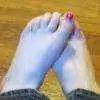-
Welcome to Celiac.com!
You have found your celiac tribe! Join us and ask questions in our forum, share your story, and connect with others.
-
Celiac.com Sponsor (A1):
Celiac.com Sponsor (A1-M):
-
Get Celiac.com Updates:Support Our Content
Considering Becoming A Consultant
Would you use a consultant?
38 members have voted
-
Get Celiac.com Updates:Support Celiac.com:
-
Celiac.com Sponsor (A17):
Celiac.com Sponsor (A17):
Celiac.com Sponsors (A17-M):
-
Recent Activity
-
- suek54 replied to suek54's topic in Dermatitis Herpetiformis7
Awaiting dermatitis herpetiformis confirmation following biopsy
Wow KK, thank you so much for all your attached info. I had a very quick scan but will read more in depth later. The one concerning corticosteroid use is very interesting. That would relate to secondary adrenal insufficiency I think , ie AI caused by steroids such as taken long term for eg asthma. I have primary autoimmune AI, my adrenals are atrophied... -
- knitty kitty replied to suek54's topic in Dermatitis Herpetiformis7
Awaiting dermatitis herpetiformis confirmation following biopsy
Welcome to the forum, @suek54, I have Dermatitis Herpetiformis, too. I found taking Niacin B3 very helpful in clearing my skin from blisters as well as improving the itchies-without-rash (peripheral neuropathy). Niacin has been used since the 1950's to improve dermatitis herpetiformis. I try to balance my iodine intake (which will cause flairs... -
- suek54 replied to suek54's topic in Dermatitis Herpetiformis7
Awaiting dermatitis herpetiformis confirmation following biopsy
Thank you all for your advice and the dermatitis herpetiformis article. The latter made me realise I had stopped taking my antihistamine, which I will restart today. The Dapsone has cleared the rash entirely but I still get quite a bit itching, absolutely nothing to see though. I know its notoriously hard to clear and its still relatively early days for me... -
- trents replied to catnapt's topic in Celiac Disease Pre-Diagnosis, Testing & Symptoms3
how much gluten do I need to eat before blood tests?
So, essentially all of the nutrition in the food we eat is absorbed through the villous lining of the small bowel. This is the section of the intestinal track that is damaged by celiac disease. This villous lining is composed of billions of finger-like projections that create a huge amount of surface area for absorbing nutrients. For the celiac person, when... -
- catnapt replied to catnapt's topic in Celiac Disease Pre-Diagnosis, Testing & Symptoms3
how much gluten do I need to eat before blood tests?
thank you so much for your detailed and extremely helpful reply!! I can say with absolute certainty that the less gluten containing products I've eaten over the past several years, the better I've felt. I wasn't avoiding gluten, I was avoiding refined grains (and most processed foods) as well as anything that made me feel bad when I ate it. It's the...
-




Recommended Posts
Archived
This topic is now archived and is closed to further replies.